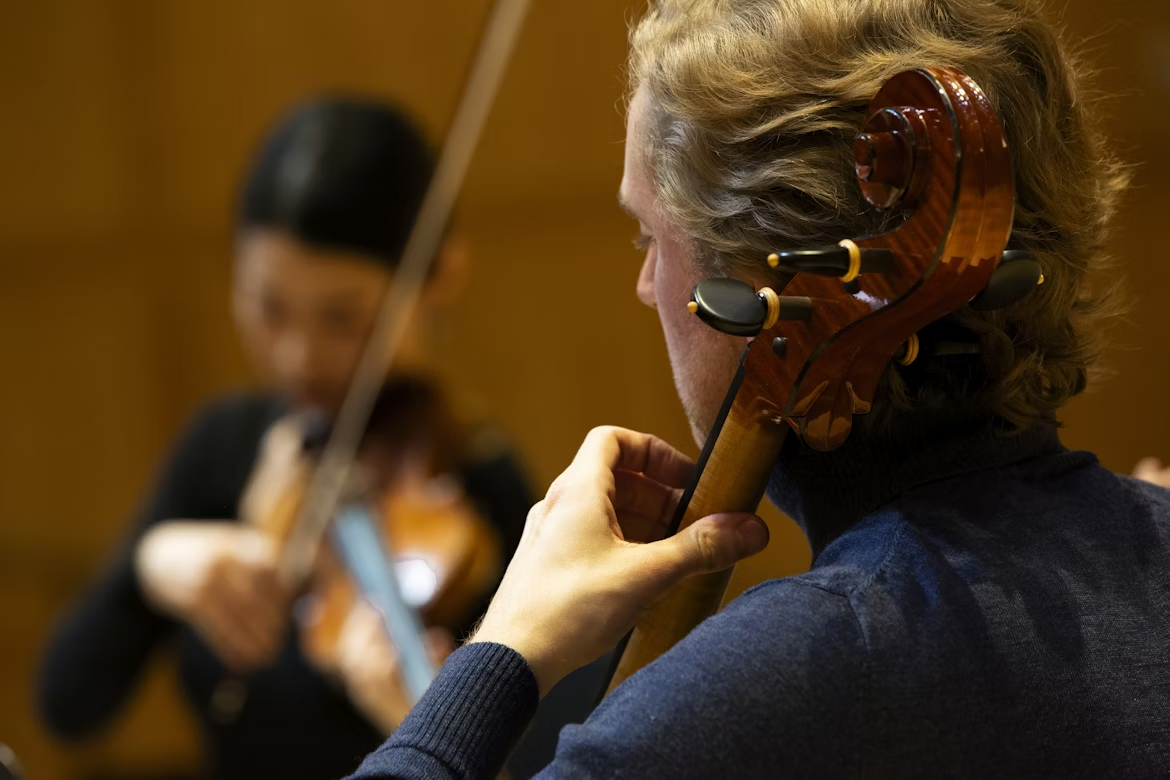
Classical music has captivated human beings for centuries, celebrated not only for its beauty but also for its profound effects on the mind. While many enjoy it as a source of relaxation, scientific research increasingly shows that classical compositions can actively enhance cognitive abilities. Listening to Mozart, Beethoven, or Bach does more than soothe the soul; it stimulates the brain in ways that improve memory, learning, focus, and creativity. The intricate structures and harmonies in classical music create an environment that nurtures mental growth, making it an invaluable tool for cognitive development.
How Classical Music Stimulates the Brain
The human brain responds to music in complex and fascinating ways. Classical music, with its multiple layers of melody, harmony, and rhythm, engages numerous areas of the brain simultaneously. These include regions responsible for auditory processing, emotional regulation, attention, and memory. When we listen to classical music, the brain decodes patterns, predicts sequences, and reacts to emotional cues, all of which strengthen neural pathways and encourage cognitive flexibility.
One widely discussed phenomenon is the “Mozart Effect,” which suggests that listening to Mozart’s music can temporarily improve spatial-temporal reasoning. Although the effect is modest, it highlights how structured classical compositions can enhance certain mental functions. Beyond this, classical music increases the release of neurotransmitters such as dopamine, which elevates mood and improves concentration. A motivated and relaxed brain is a receptive one, capable of learning more efficiently and solving problems more creatively.
Enhancing Memory Through Music
Memory is one of the key cognitive functions positively influenced by classical music. Studies show that individuals who listen to classical compositions while studying or performing cognitive tasks often retain information more effectively. Slow and harmonious pieces create a calming environment, reducing stress and anxiety, which are known to impair memory retention.
The hippocampus, a region critical for forming long-term memories, is exceptionally responsive to music. Complex musical patterns help the brain encode information more efficiently and recall it with greater accuracy. For older adults, listening to classical music has been associated with improved cognitive alertness and even a slowdown in age-related memory decline, demonstrating that its benefits extend across the lifespan.
The Role of Rhythm, Structure, and Pattern Recognition
Classical music is distinguished by its careful structure, repetition, and variation, all of which challenge the brain in subtle but meaningful ways. Listening to these compositions strengthens the brain’s ability to recognize patterns, anticipate sequences, and think logically. These skills are transferable to many areas, including mathematics, language acquisition, and problem-solving.
Children exposed to classical music often display enhanced spatial reasoning and better academic performance. Instrumental training amplifies these effects by requiring simultaneous coordination of the auditory, visual, and motor systems. Even passive listening promotes mental discipline as the brain aligns itself with the rhythm and flow of the music, improving focus and cognitive organization.
Emotional Regulation and Cognitive Clarity
The connection between emotion and cognition is critical for optimal brain function. Classical music’s emotional depth encourages mental clarity and focus by reducing stress. Listening to compositions that evoke calmness lowers cortisol levels, allowing the brain to operate more efficiently.
By fostering a state of emotional balance, classical music enhances decision-making, creativity, and analytical thinking. Its meditative qualities also promote mindfulness, encouraging listeners to engage fully with the present moment. This heightened awareness enhances the brain’s ability to absorb new information, solve problems, and think creatively.
Long-Term Cognitive Benefits
The advantages of classical music extend beyond temporary mental boosts. Regular exposure strengthens neural plasticity — the brain’s ability to adapt, form new connections, and retain information. Musicians, who actively play instruments, experience even more pronounced cognitive benefits, including improved IQ, superior attention, and advanced problem-solving skills.
Even those who listen without playing an instrument can enjoy lasting cognitive improvements. Integrating classical music into daily life enhances focus, emotional stability, and mental resilience. Whether used as a study aid, a concentration tool, or a form of relaxation, classical music nurtures the mind over time, supporting both intellectual and emotional development.
Harmonizing Life and Cognition
Classical music is far more than a form of entertainment; it is a powerful cognitive enhancer. Its intricate melodies and harmonies engage the brain, enhance memory, promote focus, and stimulate creativity. Regulating emotion and reducing stress creates an optimal environment for learning and problem-solving.
Incorporating classical music into daily routines can be a simple yet effective strategy to boost mental performance. The beauty of these compositions lies not only in their sound but also in their profound impact on cognitive function. For those seeking sharper thinking, greater emotional balance, and a more creative mind, classical music is a timeless and invaluable ally.